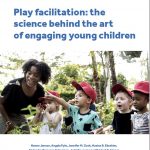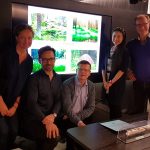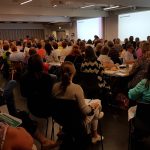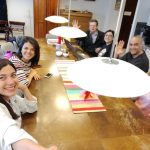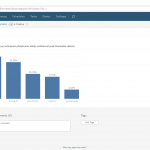 Outi Arvola, Pia Liljeroth, and Jyrki Reunamo have been analyzing the Progressive feedback data of culturally and linguistically diverse children’s physical activity concerning their participation. It is well known that physical activity affects the well-being of children, the average physical activity of children of different language and cultural backgrounds is at a good level (click on the table). However, the problem with these children is their less active social role in early childhood education and more frequent interruptions in the involvement of the learning processes. The data of Progressive Feedback shows that increased movement is connected with increased social participation and increased commitment to sustainable learning processes. A third of the sustainable and developing activity took place during a time of plenty of movement. The observational results show that exercise has increased participation and building social processes with culturally and linguistically diverse children. Movement is not only a physical activity, but it is also important for finding a place in the construction of a common and sustainable social reality. People from different language and cultural backgrounds can brush up on this already in early childhood education with the help of exercise. The research result is significant when developing pedagogical measures. Check out the article via the link below:
Outi Arvola, Pia Liljeroth, and Jyrki Reunamo have been analyzing the Progressive feedback data of culturally and linguistically diverse children’s physical activity concerning their participation. It is well known that physical activity affects the well-being of children, the average physical activity of children of different language and cultural backgrounds is at a good level (click on the table). However, the problem with these children is their less active social role in early childhood education and more frequent interruptions in the involvement of the learning processes. The data of Progressive Feedback shows that increased movement is connected with increased social participation and increased commitment to sustainable learning processes. A third of the sustainable and developing activity took place during a time of plenty of movement. The observational results show that exercise has increased participation and building social processes with culturally and linguistically diverse children. Movement is not only a physical activity, but it is also important for finding a place in the construction of a common and sustainable social reality. People from different language and cultural backgrounds can brush up on this already in early childhood education with the help of exercise. The research result is significant when developing pedagogical measures. Check out the article via the link below:
Arvola, O., Liljeroth, P. & Reunamo, J. (2023). Is physical activity a pathway to culturally and linguistically diverse children’s participation in early childhood education and care? Journal of Early Childhood Education Research 12(1), 150-168. https://journal.fi/jecer/article/view/117865/76580

